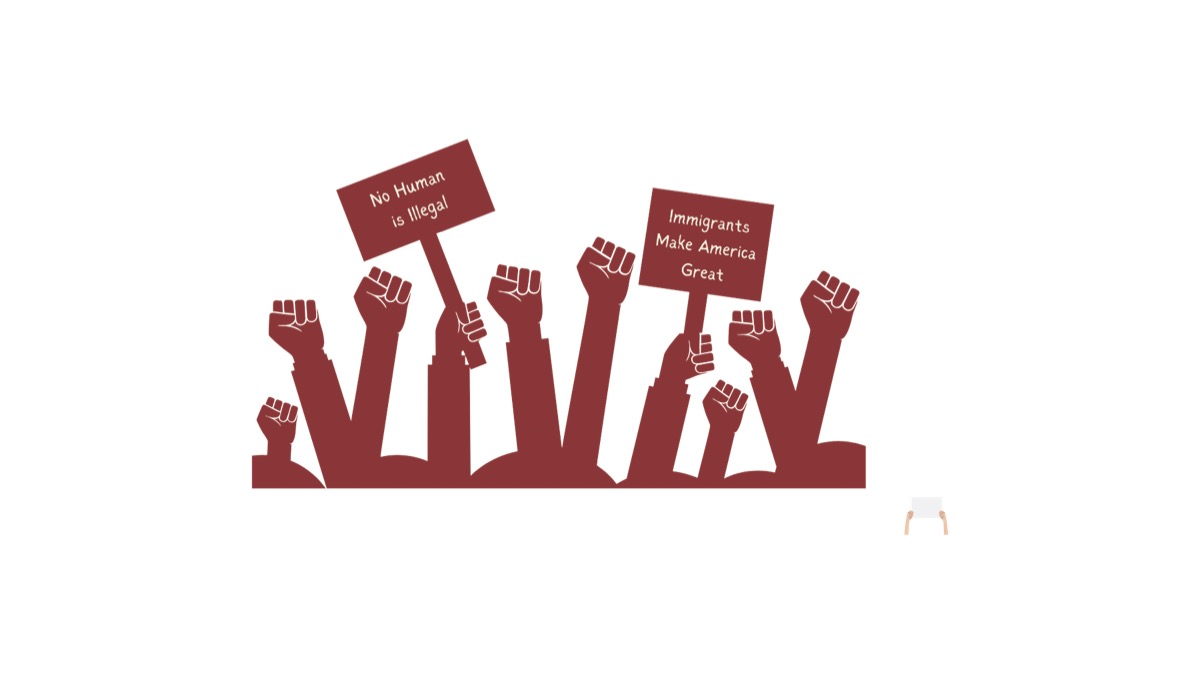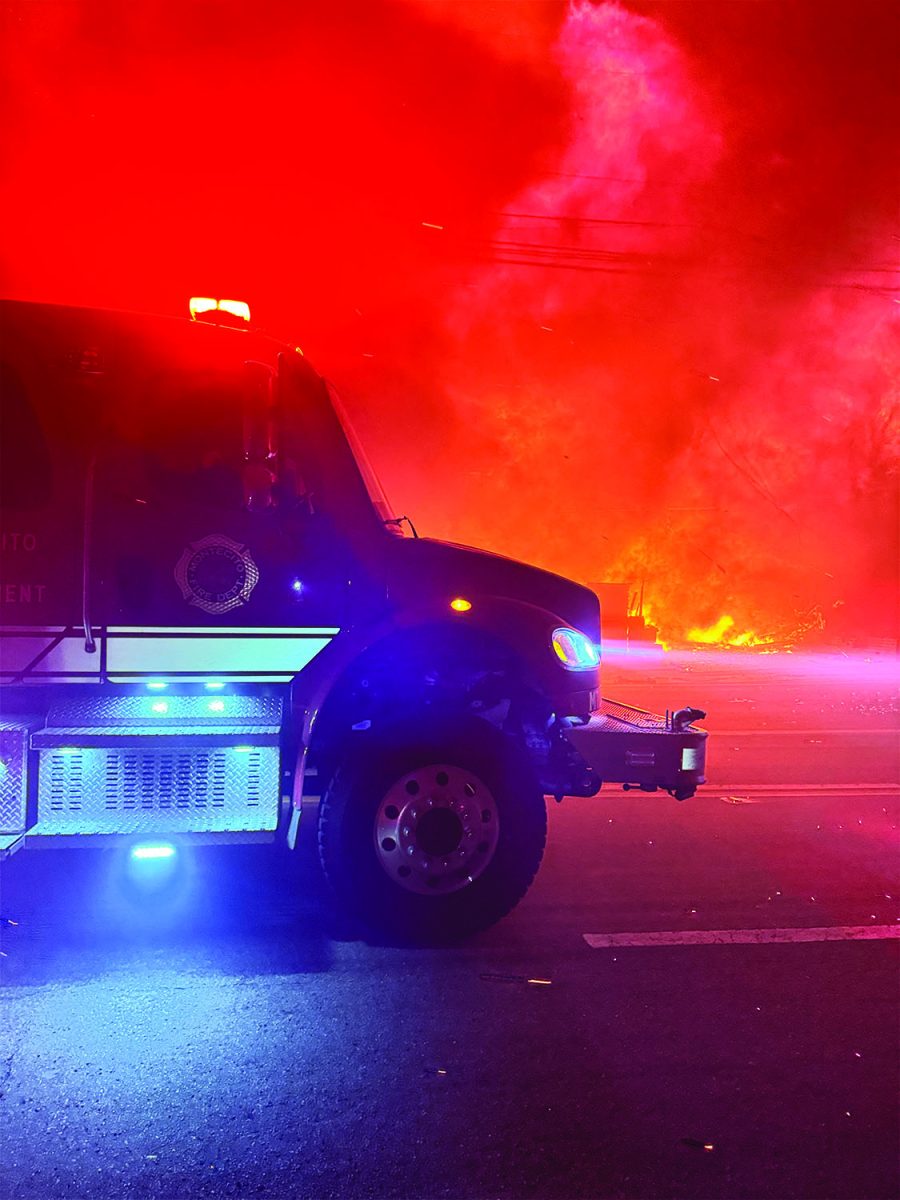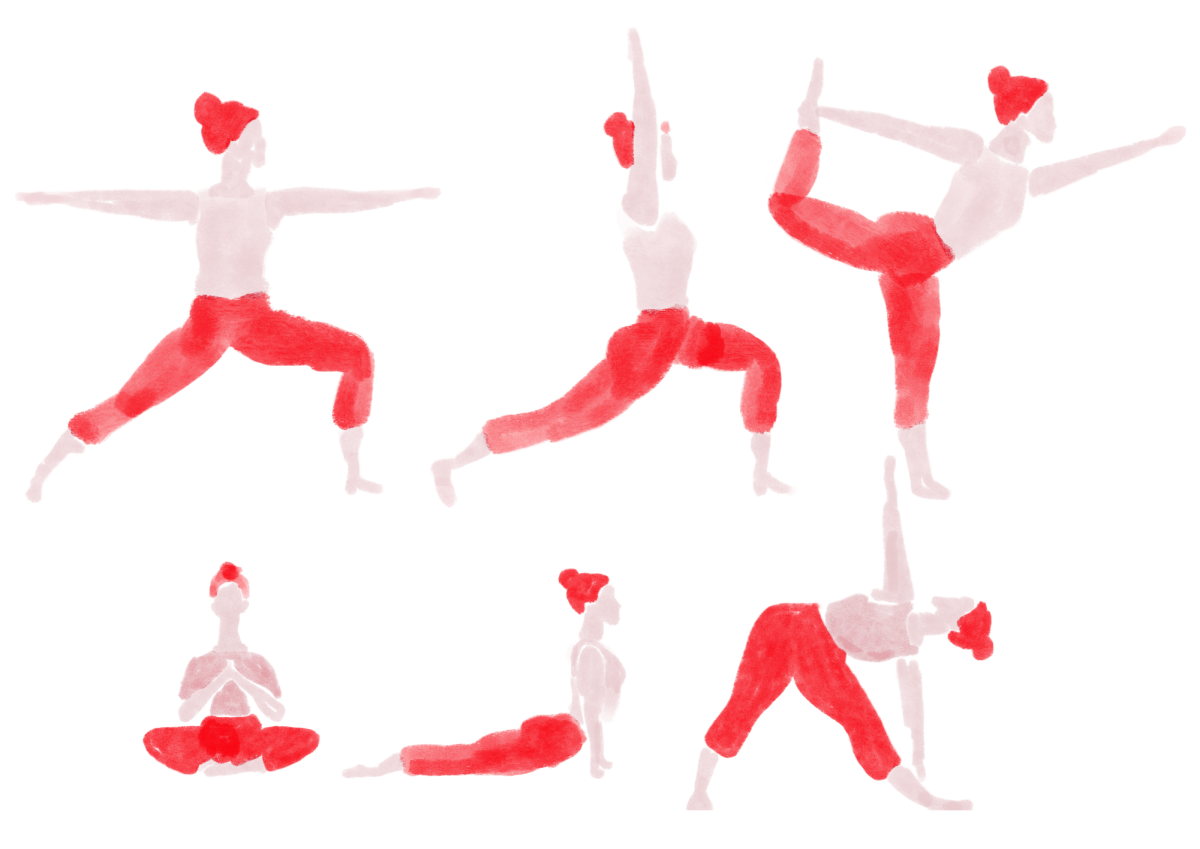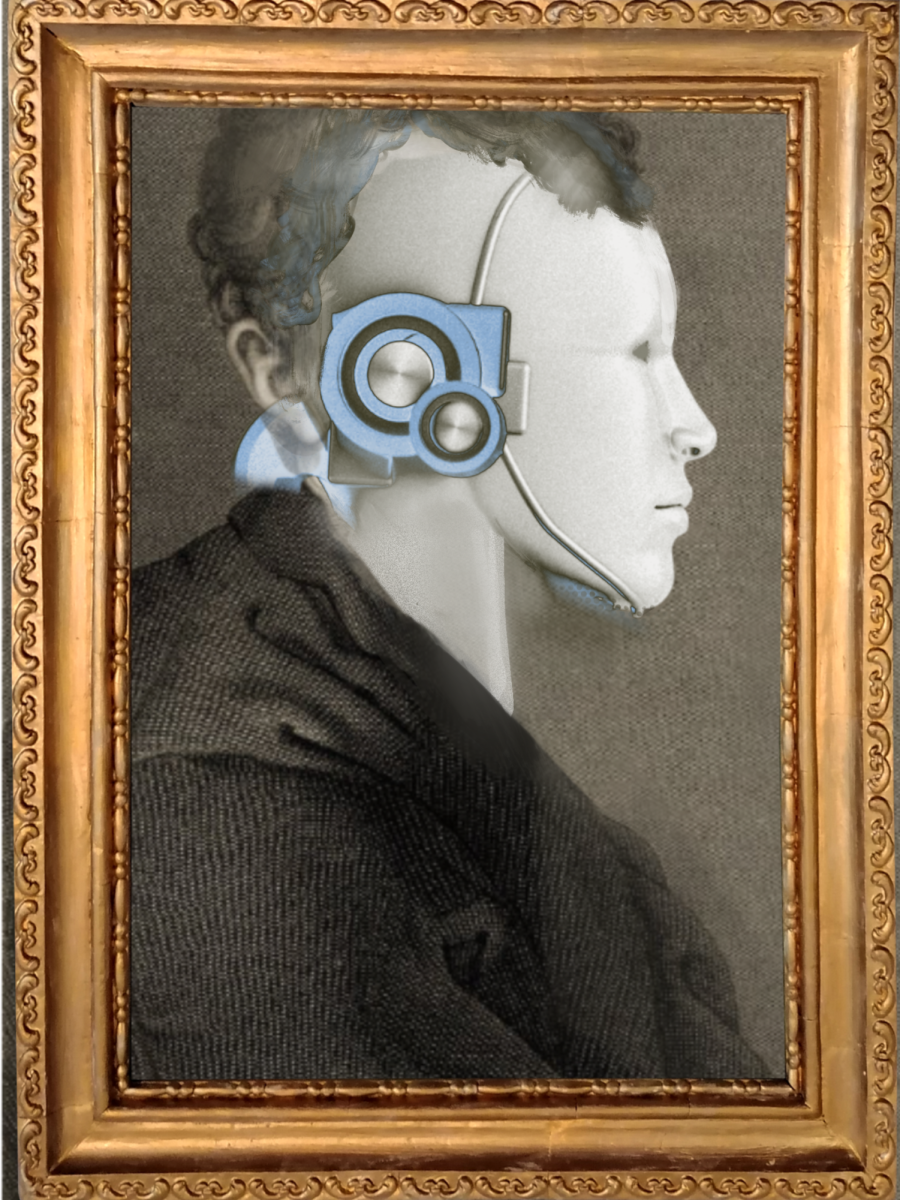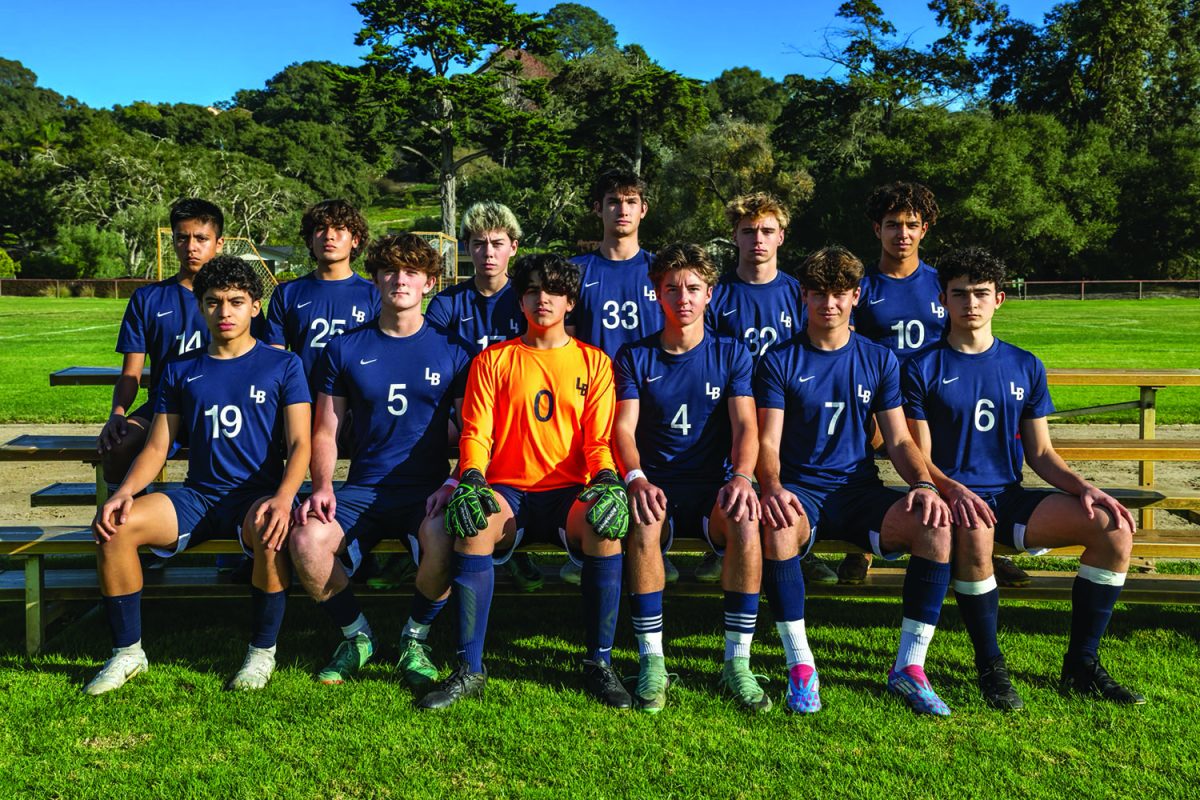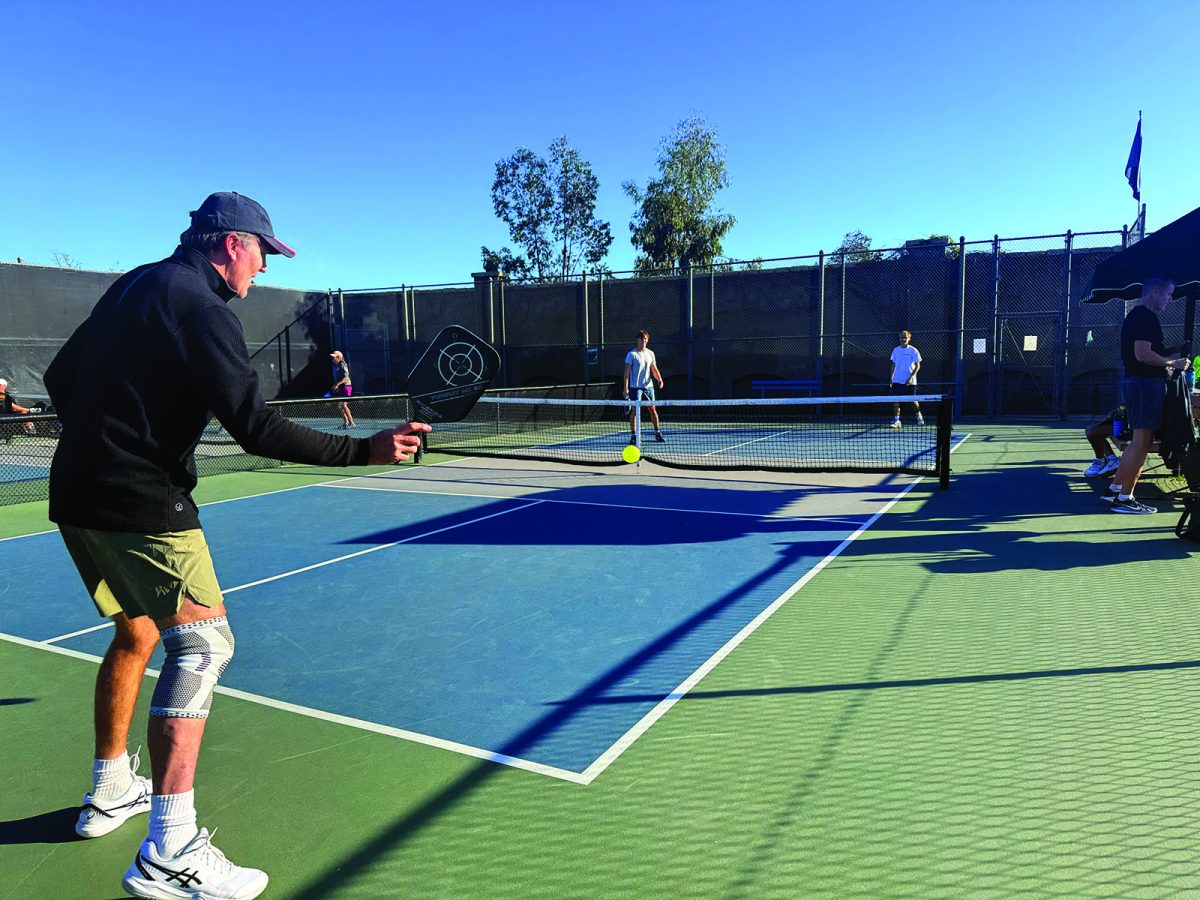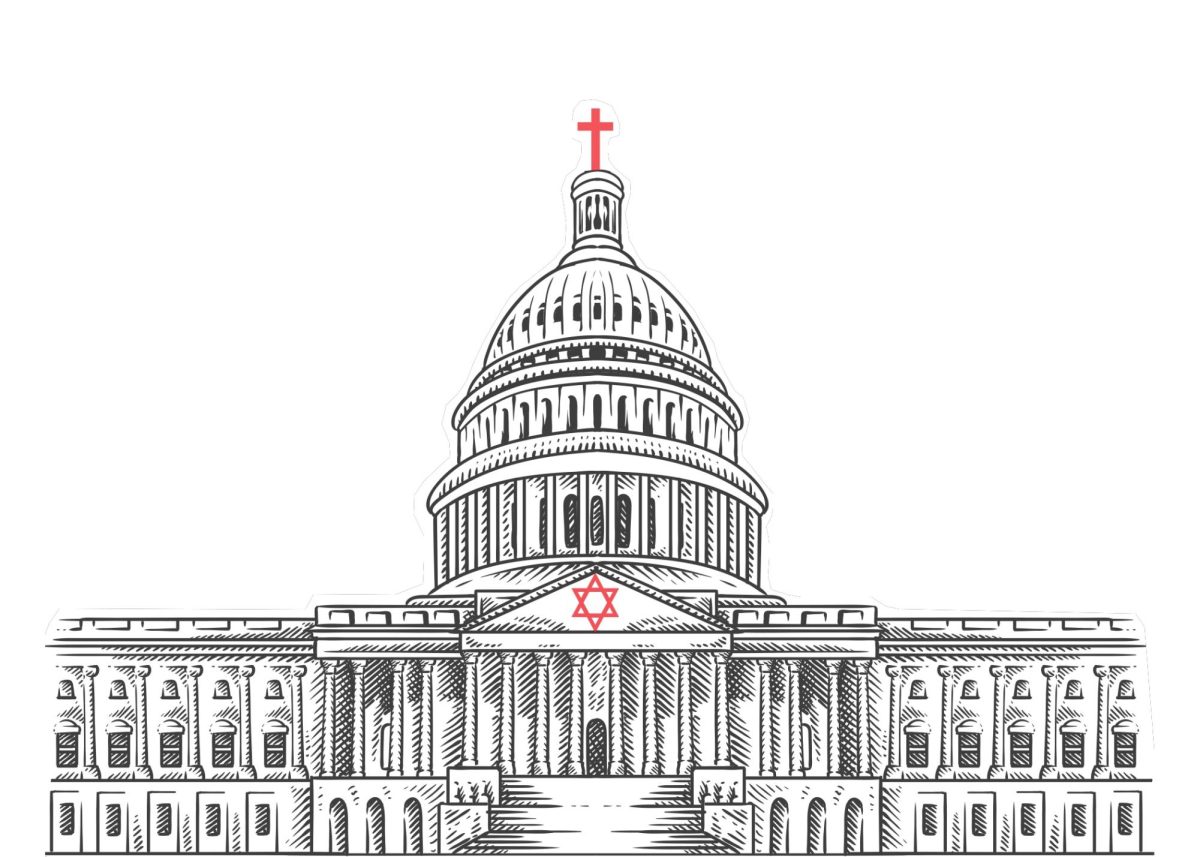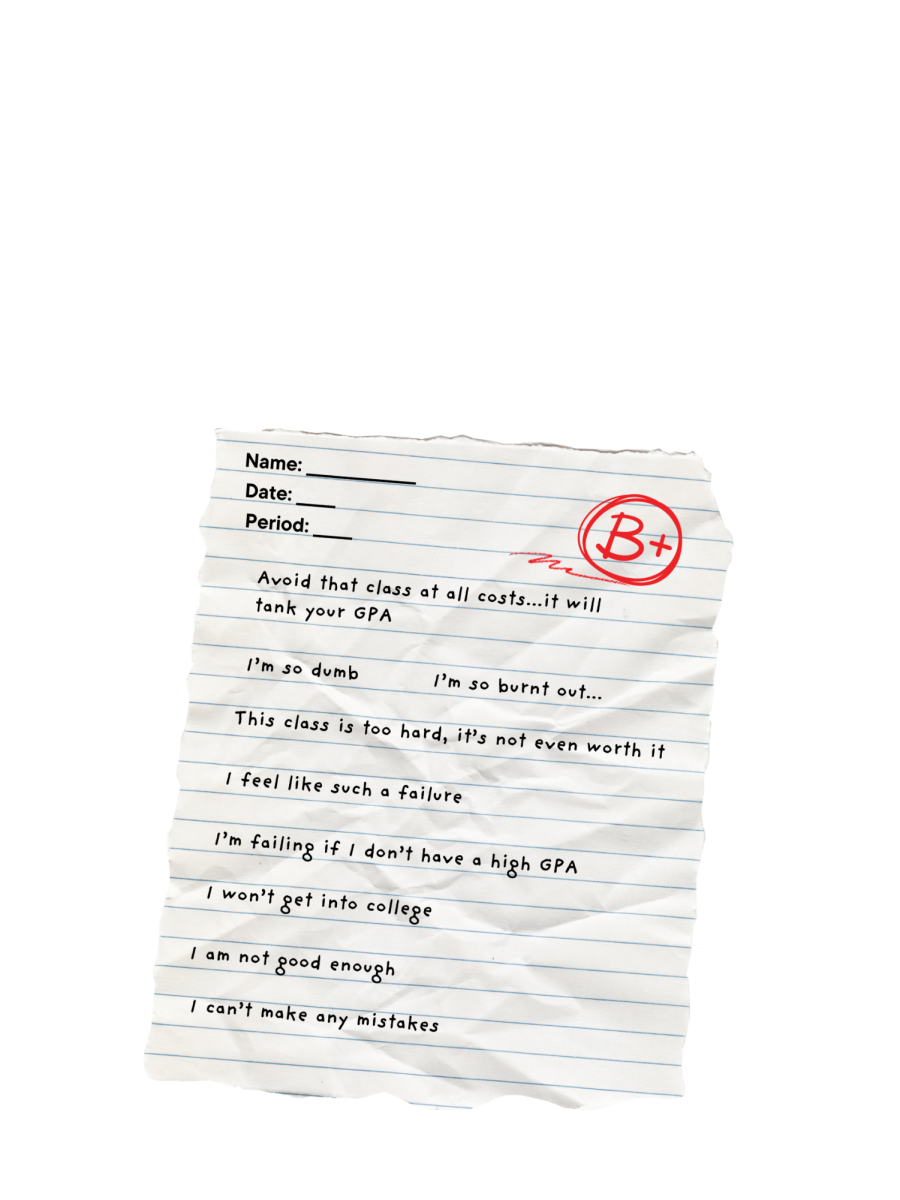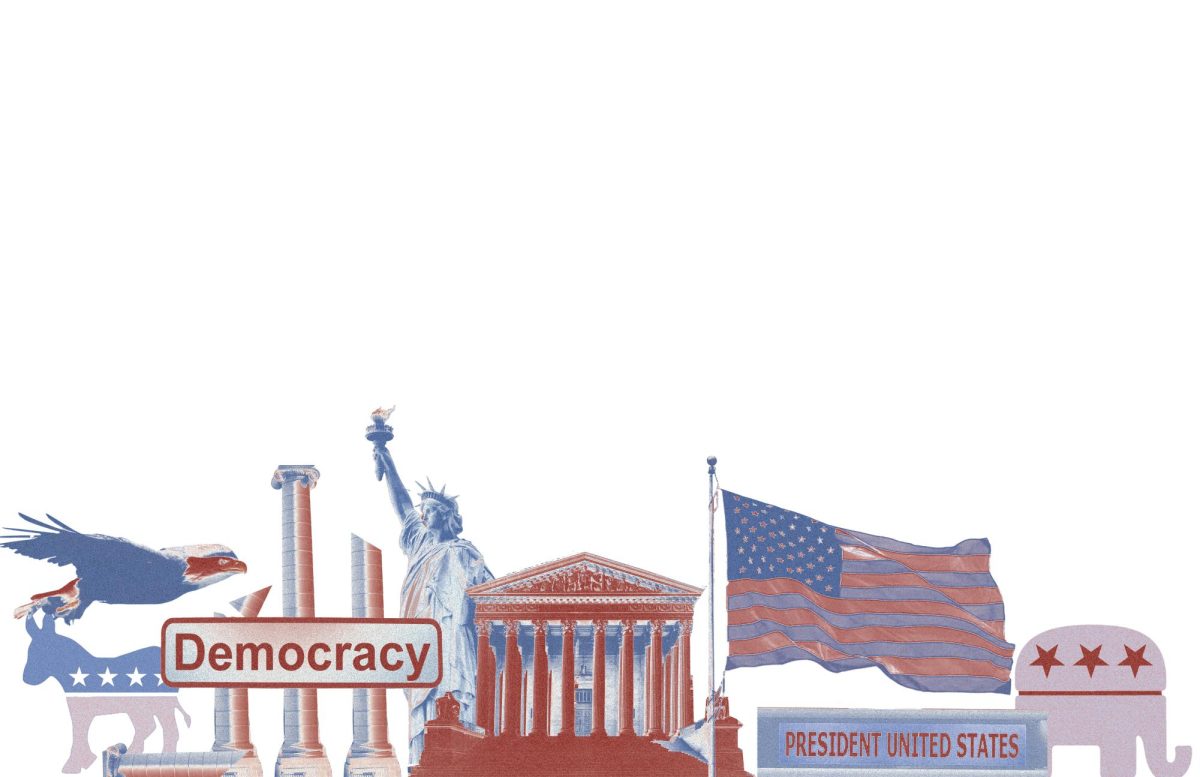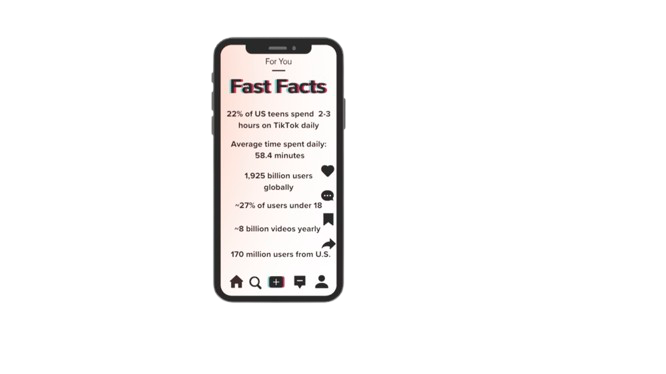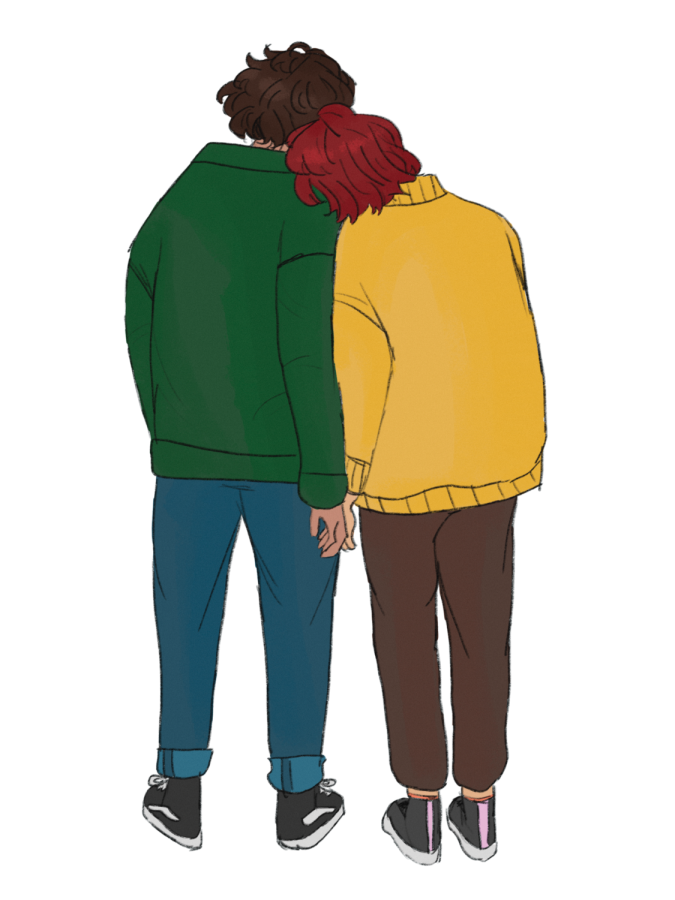The Unspoken Line
As COVID-19 fades and dances and social life come back, the student body and administration are posed with the question of what types of PDA is acceptable. What is crossing the line when there is no line?
March 10, 2022
PDA: Public displays of affection. Hugging, kissing, hand-holding.
While it’s a part of everyday life, PDA remains a complex and controversial topic when in a professional setting.
While people usually limit the idea of professionalism to the workplace, it can also apply to school life.
If school is preparing us for a professional setting, why do we feel it is socially acceptable to put our relationships on display at school if it’s not tolerated in the workplace?
Dating is almost entirely synonymous with high school. Stories in movies and TV have always favored the idea of finding love while at school.
In “High School Musical,” the film is focused on romance, dancing, and singing. Gabriella, the brainiac to end all brainiacs, did precisely one chemistry lab that stunned the entire student body (and, of course, made Troy Bolton fall in love with her).
Movies such as this, “Grease,” “10 Things I Hate About You,” and “Clueless,” created an idealized image of what high school is about: dramatic displays of public affection.
“I have actually had more issues with students before they’re a couple than when they’re a couple. When people are metaphorically feeling each other out, and flirting seems to be much worse right before they become a couple than when they become a couple,” said science instructor Katie Pointer.
“Coming to the States, I thought that it was going to be like in the
movies. Growing up in Germany, we don’t have all the football games and dances, which really romanticized high school in America,” junior Emma Schubert said.
“But, I must say, even though I expected there to be a lot of dating and cute prom-posals, there’s not as much as I thought there was going to be. People are a little awkward. There’s definitely more dating and drama in Germany than there is in America.”
When parents or older siblings look back on teenage memories, they probably reminisce about who they went to dances with and why they broke up with their high school sweetheart before mentioning the classes and teachers that had significant impacts on their lives.
But the question remains: what PDA is okay at school and what isn’t?
The student handbook states that “public displays of intimate affection are considered inappropriate for a school setting,” which is the only reference to PDA, leaving much up for interpretation.
Of course, you can hug your friends without anyone blinking an eye, but where is the line drawn for romantic relationships.
The inclusion of the word “intimate” suggests that the PDA that is not acceptable is limited to that between romantic partners. Yet there is no written consequence for an act of “public displays of intimate affection.”
In failing to specify what is crossing the line, the handbook creates an environment where the forms of affection one chooses to participate in are left up to the couple.
And, if students engage in something considered inappropriate, what are the consequences on an administrative level?
Unlike breaking the dress code, which has a straightforward and ordered discipline process, PDA is left to subjective forms of punishment because nothing concrete is outlined in the handbook. The natural consequence of PDA is how peers and teachers perceive it.
“Amongst the faculty and admin, I do not feel there is a culture of judgment against couples or relationships. I have to admit I don’t know what goes on amongst the students,” Pointer said.
“Over the years, what couples consider appropriate displays of affection on campus has varied from the benign like I would consider hand-holding a very appropriate form of affections. And then there was a couple years ago who would straight-up make out in front of my classroom every day, and that would make me a little uncomfortable. But that’s not the norm on campus, at least in my opinion.”
Because the administration does not have a defined set of standards regarding PDA, students feel no fear or hesitation when it comes to PDA.
Nevertheless, they are met with harsh judgment for engaging in something the administration has deemed completely acceptable by lack of specification.
“I don’t think that it’s that big of a deal. From my point of view, I wouldn’t want to be displaying affection anyway. I think it’s common sense and self respect that people aren’t going to start making out at school. But there’s always exceptions,” said Emma.
It has created an environment where students feel comfortable judging and criticizing couples for displaying affection.
To eliminate this culture of gossip and criticism, the school must clearly articulate its position on PDA, clearly outline what is appropriate and what crosses the line, and set up a system to clarify the school’s values in terms of public displays of affection. Ultimately, the administration needs to make its stance clear.
“At Laguna, and within the community, being in a committed relationship is the minority, to begin with,” said junior Molly Morouse.
“So since most people aren’t dating, anyone who even is a couple, even if they aren’t being affectionate, are still going to feel left out.”
Dancing around the subject leaves students confused about how to act and react.
If these guidelines are established, students, teachers, and couples will exist in a more fair and kinder environment.
“I think that people can definitely be too quick to judge sometimes,” said senior Frances Carlson. “It is common for someone to make assumptions and jump to conclusions when they don’t really know the full story. Relationships at school versus in private can be very different.” “I feel like my relationship is very different outside of school than in school. We don’t have any classes together, and I usually have a meeting at lunch so we don’t really have time to interact that much on campus.”
If the faculty and administration stay in the grey area of acceptance, students can no longer feel it is their right to comment and decide what type of PDA is admissible

